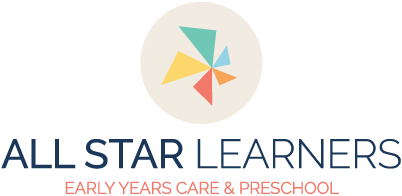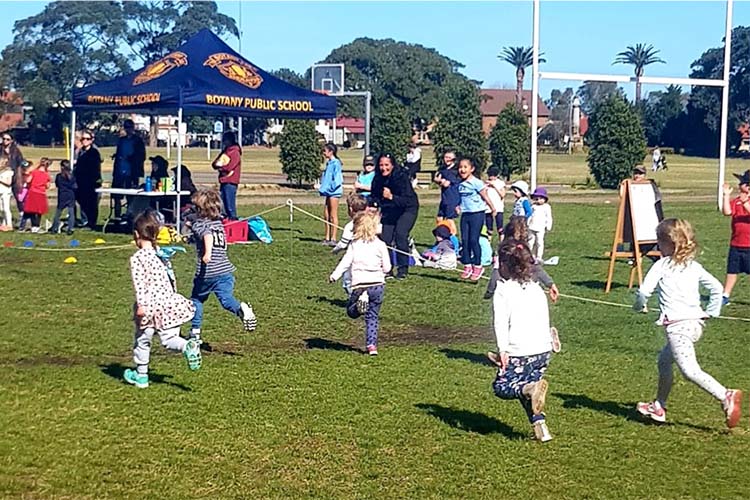At All Star Learners we believe that many of the skills developed as part of ‘school readiness’ programs are more about life readiness: self-confidence, knowing and looking after belongings, recognising and writing our names (and later, others’ names and more words), learning how to take turns, how to follow instructions, how to be active participants in a group and much more.
Engaging in the Broader Community
Giving children the opportunity to engage with the community and have exposure to what life at school is like is key to our approach. The collaboration between All Star Learners and our local schools is an ongoing partnership and we are regularly invited to attend events, including parades and athletics carnivals. This community partnership and the regular visits throughout the year assist the children in developing their understanding of what the school environment is like, including similarities and differences between school and what they experience at All Star Learners. Children become excited when a school visit is coming up. Some of them get to see their older siblings or some of their old All Star Learners friends.
All Star Learners regularly liaises with local primary school teachers to discuss matters such as expectations for starting school, how best to encourage directional writing with the children who have shown a particular interest in writing and suggestions on supporting children who have begun to show an interest in reading.
Emotional Resilience and Life Readiness
Supporting children to develop their emotional resilience is also an important part of our program. One of the many tools we use centres around, ‘Have you filled a bucket today?’ a book by Carol McCloud which has a wonderful message of spreading kindness. We all have an invisible bucket filled with good thoughts and feelings; we fill each other’s buckets and our own when we say or do nice things for each other.
At All Star Learners we have a strong focus on valuable life skills, which are also considered to be indicators of school readiness, for example:
- Knowing who we are and feeling a sense of belonging to an immediate and wider community
- Recognising and looking after our belongings
- Developing self-help skills
- Becoming active community participants
- Being able to follow instructions and listen to others
- Developing an understanding, appreciation and responsibility for connecting with and contributing to our world
Making it a Whole Family Experience
Families are always invited to attend our school transition visits. Some parents meet the children at the park for the athletics carnivals, cheering them on during their own race! Seeing their families becoming involved and having a positive experience instils positive associations and experiences with the children too.
We also encourage open communication with families with regards to their children’s interests, for example in reading and writing. This allows us to add more experiences to the program to benefit the child’s learning preferences. It is through the children’s interests that we are able to provide experiences that promote the learning of lifelong skills.
Empowering the Children
When educators have high expectations for children and empower them to make choices about their learning, children develop their confidence in their own abilities. Our educators provide a range of stimulating and challenging experiences for all children. Children engage in discussions with peers and educators where they can share their existing knowledge, such as through the morning meetings in the Preschool room. Educators are then able to build on the children’s learning, extending on what they already know.
The learning environments are set up in a way that encourages the children to resource their own learning, meaning they are given opportunities to play and learn independently and with each other.
Life Readiness in Action
There are a number of ways that this program comes to life across all stages at All Star Learners:
- In the Nursery, children enjoy sitting with their educator to read a picture book, pointing at the words. They begin to recognise their belongings and understand routine – pointing to their water bottle, getting their hats out of their bag when they wish to go outside. The children engage in STEM experiences, nurturing their desire to investigate, experiment and discover.
- In the Toddler Room, children extend on these experiences as they begin to show more interest, and their skills continue to develop. The Toddler children love to sit in a circle and listen to stories and sing songs together; they enjoy exploring colours and shapes and some numbers and letters through games and sensory activities.
- In the Preschool Room, the children love to share news in front of their peers – their growing confidence enables them to capture their peers’ attention, share knowledge and respond to questions. The school leavers engage in regular visits to some of the local schools – visiting their library, taking part in classroom activities or sports classes, joining in on their Easter Hat and Book Week Parades.

